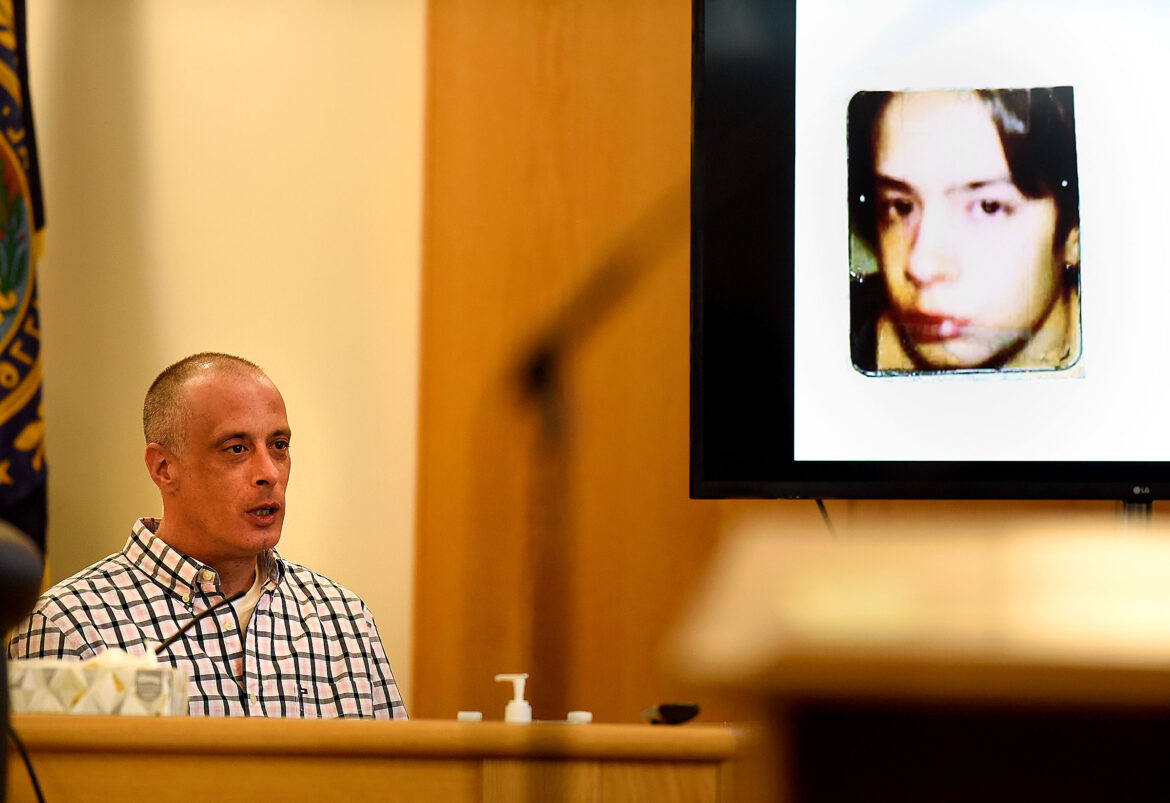The state of New Hampshire’s responsibility for the hundreds of rapes and beatings David Meehan suffered while in state custody is more than proved, and the state cannot get out from under the $38 million verdict, yet, Rockingham Superior Court Andrew Schulman ruled this week.
“The court can only rule based on the trial record, and maybe there is more to the story, but based on the trial record liability for negligence and breach of fiduciary duty was proven to a geometric certainty,” Schulman wrote.
Brandon Chase, a New Hampshire Department of Justice attorney representing DHHS, filed a motion Monday asking Schulman to set aside the verdict claiming Meehan didn’t prove the state is liable, and that Meehan’s lawsuit was filed beyond the statute of limitations. Schulman quickly rejected both arguments.
On Tuesday, Schulman issued an order denying a motion made by lawyers for the New Hampshire Department of Health and Human Services to set aside Meehan’s $38 million jury award, saying Meehan’s team proved at trial the state is absolutely responsible for allowing the abuse to go unchecked.
“Mr. Meehan proved beyond cavil, beyond doubt, and certainly by more than a preponderance of the evidence — that the State Defendants (e.g. the management at YDC and their superiors at DYDS, DCYF and DHHS) breached their common law and fiduciary duties of care with respect to training, supervising and disciplining line staff,” Schulman wrote.
What the state will ultimately pay is still pending another hearing in front of Schulman set for June 24. The New Hampshire Attorney General’s Office claims state law caps the award at $475,000, an assertion jury members protested after the verdict was made public.
The evidence clearly shows the state knew about abuse happening in the Sununu Youth Detention Center, and did nothing to stop it, Schulman wrote. Officials in YDC hired unqualified and untrained staff, failed to implement policies to train staff on preventing sexual assault, allowed staff to corrupt the ombudsman program for reporting abuse, encouraged physical violence by staff as a way to discipline the children, and repeatedly ignored reports of sexual assault, Schulman wrote.
“YDC leadership was, at best, willfully blind to entrenched and endemic customs and practices under which a group of cottage staff engaged in frequent sexual assaults of residents, engaged in graphic and gruesome physical assaults of residents, engaged in constant emotional abuse of residents, and refused to allow trainers and ombudsmen into the cottages,” Schulman wrote. “YDC leadership either knew and didn’t care or didn’t care to learn the truth.”
As to the claim Meehan filed his lawsuit too late, Meehan’s lawyers argued he had no idea that state officials knew about the abuse when it was happening. He was from YDC released in 1999, but didn’t realize supervisors and administrators were at fault in any way until he filed a police report in 2017.
“It took a State Police Major Crimes investigator, acting with the imprimatur of the AG’s task force, assisted by a staff, and aided by search warrants, to uncover the truth,” Schulman wrote.
Even if Meehan tried to investigate the state’s responsibility on his own before he made the 2017 police report, Schulman wrote he’d get nothing as the trial evidence shows the state hid its role in the abuse.
“After Mr. Meehan left YDC, he had no facts to show that the central management at YDC, and the supervisors at DYDS, DCYF and DHHS were really to blame. If he had requested information, he would have been given a Potemkin Village of de jure policies on Harm Protection, Room Confinement and the Ombudsman System,” Schulman wrote.
Meehan suffered decades of mental health problems and addiction as a result of the crippling Post Traumatic Stress Disorder caused by the abuse.
David Vicinanzo, one of Meehan’s attorneys and an attorney for 1,400 other YDC survivors, said Wednesday the state is responsible for decades of abuse, and facing more verdicts like Meehan’s.
“The Court found ‘beyond doubt’ that the state breached its fiduciary duty to the kids in its care in the 1990s. We will prove in subsequent trials that the State’s conduct was ‘wanton, malicious and oppressive’ in the ‘70s, ‘80s and post-2000s as well,” Vicinanzo said.
New Hampshire’s Attorney General’s Office issued a statement this week that taxpayers are on the hook to pay Meehan’s award.
“The award payment would not be covered by insurance, as the State is self-insured, rather taxpayer dollars from the State’s General Fund would be used,” a spokesman said.





